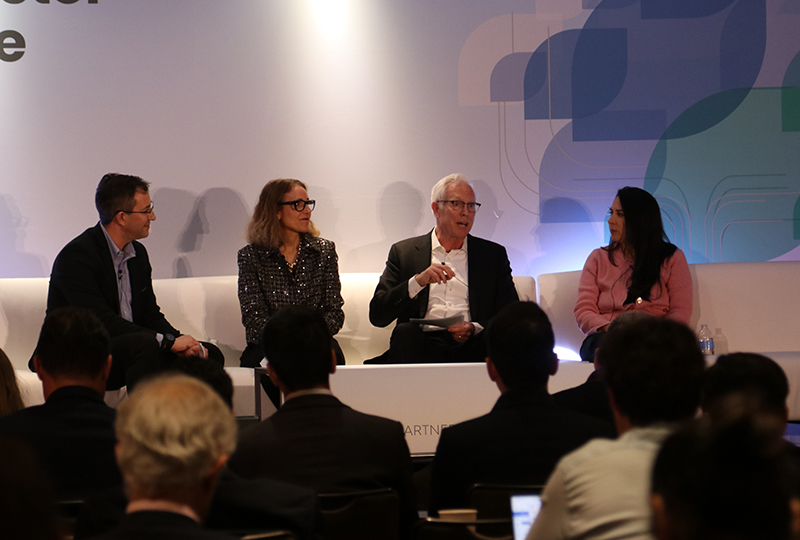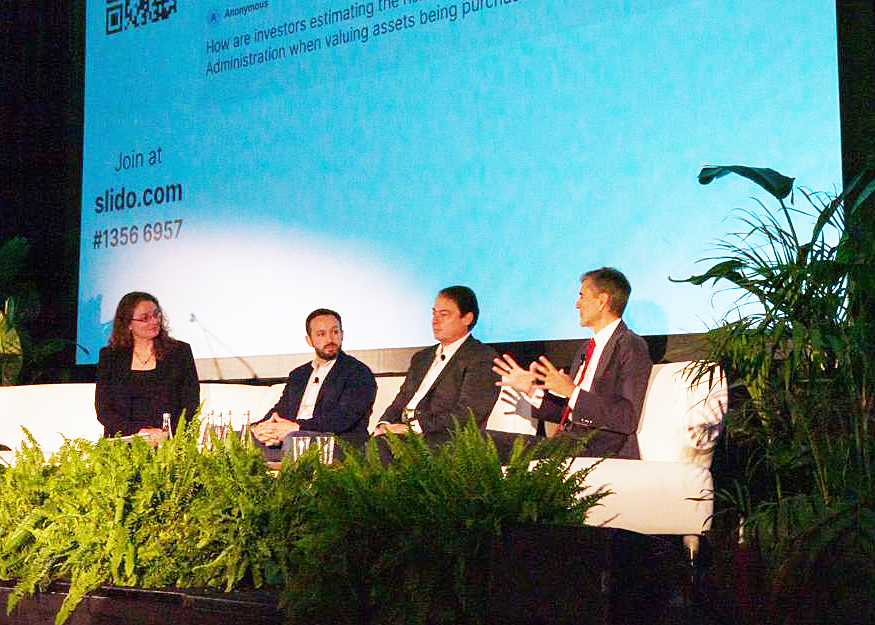The idea of AI supercharging drug development is stirring a lot of excitement. However, a realistic understanding of what AI can and can’t do is important for anyone who wants to understand the innovation and investment potential, explained panelists at the 2025 Biotechnology Innovation Organization (BIO) CEO and Investor Conference in New York.
The Feb. 10 panel, AI’s Utility in Pharmacokinetics and Biomarker Selection, explored how AI is already being used, the potential for greater achievements, and the limitations. The panelists discussed the best ways to apply AI in discovering and testing new drugs.
AI is only a tool
“If someone comes to you and says that they can make a drug using AI with the push of a button, that is a good indicator that you shouldn’t be talking to that person,” said Maria Luisa Pineda, Co-founder & CEO of Envisagenics, a company developing RNA therapeutics. The sentiment was shared by Deirdre De Steno, Senior Vice President and Head of Commercial at Owkin, considered “the first end-to-end AI biotech.”
“AI is a tool,” Pineda repeated throughout the session, underscoring the session’s main message: AI in healthcare and drug development is still a new field, and misconceptions about how it is used mirror conversations heard outside of drug discovery—that AI will fully replace the work of humans.
Not the case, Pineda said.
“When you make human pictures with AI, what happens?” she explained. “Most of the images of humans end up with six fingers, right? So imagine antibodies, or CAR-Ts, or RNA having that metaphorical extra sixth finger.”
Quality over quantity
“Garbage in, garbage out,” Pineda said when referring to the importance of good data sets.
When it comes to effective drug discovery, it is better to have less good data than more bad data. This is a positive sign given that AI data sets in drug discovery are still quite small.
On the point of data sets, the panelists noted, AI offers interesting solutions to historic problems, including researcher bias.
“Ten different chemists will look at the outputs of a high-frequency screening and say, Here are the hit molecules,” said Michael Foley, Chief Executive Officer at Excelsior Sciences. “All of those chemists would pick a different set of molecules to move forward based on their own comfort levels. That mutes all of the power, frankly, of generative AI right now.”
“We have to get higher quality data and then get human bias out of the equation and just let the data talk,” continued Foley.
To this point, AI in drug discovery has arguably less bias, according to the panelists, and may be able to help expand researchers’ options far beyond what they would be able to imagine themselves.
AI is also incredibly useful in helping humans identify biomarkers, especially when they manifest slowly over the course of years—a time span that a human cannot effectively “see.”
“Generally, when you’re thinking about biomarkers, you are thinking about personalized medicine,” said De Steno. “For some companies that’s a great thing to think about; for others, they see that as a limitation. At Owkin, we think about the way to better understand that patient profile where AI comes along; are there new biomarkers that a human alone can never identify?”
The future of AI in biotech
When asked what their predictions for the future of AI were, the panelists were clear.
“Personalized medicine,” Pineda said. AI allows researchers to predict better therapeutic drugs for the right patients.
“We want to get the right drugs to the right patients at the right time,” she said.
“What target am I going to work on?” Foley asked. “It’s the single hardest question, and it’s why drugs fail in the clinic for novel targets. We don’t know–until we get in and actually test these molecules in humans–what they are going to do.”
His concern is understandable as someone who works in small molecule drug discovery. Less than 2000 small molecule drugs have been approved by the Food and Drug Administration, “a shockingly low number,” he said. With the inclusion of AI in the drug discovery process, we might finally be at a point in history where we start to see that change.
De Steno has a different vision of work to be done as part of the ebb and flow as the biotech industry pushes in one direction and regulation pushes in another. “There has been a lot of investment into smaller companies to push AI forward,” she said. “Now larger pharmaceutical companies are also investing in AI working together, as well. The next push against us is going to be the regulators.”




